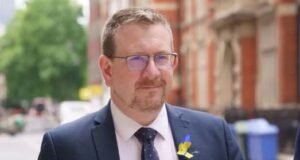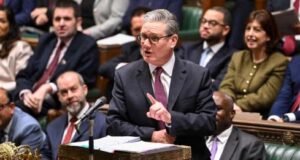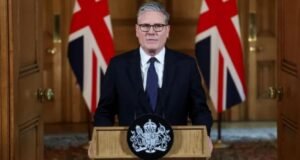 The first all-out doctors’ strike in the history of he NHS has begun in England with ministers admitting it is a “bleak day” for the health service.
The first all-out doctors’ strike in the history of he NHS has begun in England with ministers admitting it is a “bleak day” for the health service.
But Health Secretary Jeremy Hunt again reiterated that the government would not back down and halt the imposition of the new contract.
Junior doctors walked out of routine and emergency care at 08:00 BST.
It is the first time services such as A&E, maternity and intensive care have been affected in the dispute.
NHS bosses believe plans are in place to ensure safety, but say the situation will be monitored closely during the stoppage which ends at 17:00 BST.
Further all-out strike action is due to take place on Wednesday, between the same hours.
Speaking to the BBC, Mr Hunt described it as a “very, very bleak day” for the NHS, but said no union had the right to stop a government trying to act on a manifesto promise.
“The reason this has happened is because the government has been unable to negotiate sensibly and reasonably with the BMA.”
Ahead of the strike, government sources had briefed that they could not give in as the row had become political with the BMA trying to topple the government and other unions watching the dispute “like hawks”. The BMA described this as ridiculous.
During the latest stoppage hospitals can request that junior doctors return to work if needed, but as yet no NHS trust has raised the alarm.
NHS England said “military level” contingency planning had been carried out to protect urgent and emergency care.
Steps taken include:
The postponement of nearly 13,000 routine operations and more than 100,000 appointments to free up staff
The cancellation of holidays and study leave
Redeployment of consultants, middle-grade doctors and nurses into emergency care
More GP appointments being kept free for last-minute requests
An increase in 111 staff rostered on to allow the phone service to handle more calls
Patients are being urged to think carefully about how they use the NHS during the strike – a website has been set up giving patients details about what services are available where they live.
NHS England’s Anne Rainsberry said: “Clearly industrial action of this type can put significant pressure on the NHS. We have been working with all hospitals to make sure they have plans in place to provide urgent and emergency care.”
She said those plans were “robust” and hospitals were “confident” they could cope, but the situation would be kept under review.
There are over 50,000 junior doctors in the NHS in England, representing about a third of the medical workforce.
It comes as a new poll by Ipsos MORI for the BBC showed the majority of the public still backed junior doctors, although support was not as high since it became an all-out stoppage.
Asked whether they supported junior doctors striking while not providing emergency cover, 57% said they would and 26% said they were opposed.
The last time the public was asked was ahead of the 48-hour walkout in March, when emergency cover was maintained. Then 65% supported junior doctors.
The poll of more than 800 adults in England also found a growing number of people blaming both sides for the impasse. Some 35% said the government and junior doctors were at fault. The majority – 54% – still blamed the government.
The dispute is about working hours and pay, but a key sticking point is about payments for working on Saturdays.
Talks between the government and British Medical Association (BMA) broke down in January, prompting the government to announce in February that it would be imposing its contract in the summer.
Currently junior doctors are paid more for working unsocial hours at night or at the weekend, but under the imposed new contract the Saturday day shift will be paid at a normal rate in return for a rise in basic pay.
Talks at conciliation service Acas broke down in January
A final take-it-or-leave it offer was made by the government in February but was rejected by the BMA
Ministers subsequently announced the contract would be imposed from the summer
It will reduce the amount paid for weekend work, but basic pay is being increased
The BMA wants a more generous weekend pay allowance and more investment for more seven-day services – the government is not increasing the overall budget for junior doctors’ pay
Two legal challenges are being pursued by doctors against the imposition
Hospitals are pushing ahead with the new contract – offers are expected to go out in May
The government is refusing to reopen talks, arguing it made compromises earlier in the year but the BMA did not
The first four strikes in 2016 all involved emergency cover being provided, before the all-out stoppages on 26 and 27 April
The strike comes after last-minute pleas from medical leaders, patient groups and opposition MPs for both sides to get back round the negotiating table.
National Voices, a coalition of patient groups and charities, even offered to host talks.
Chief executive Jeremy Taylor said: “It seems wrong that there is a big strike in the offing, more possible strikes to come, no strategy for ending this dispute, no negotiations going on. There is a stand-off.
“Patients and the public are caught in the middle – and the harm is being felt by patients and their families.”
BMA junior doctor leader Dr Johann Malawana said if the government had scrapped his plan to impose the contract the union would not have taken this action.
“No doctor wants to take any action. They want to be in work, treating patients, but by refusing to get back around the negotiating table the government has left them with no choice but to take short-term action to protect patient care in the long term.”
 Weekly Bangla Mirror | Bangla Mirror, Bangladeshi news in UK, bangla mirror news
Weekly Bangla Mirror | Bangla Mirror, Bangladeshi news in UK, bangla mirror news







